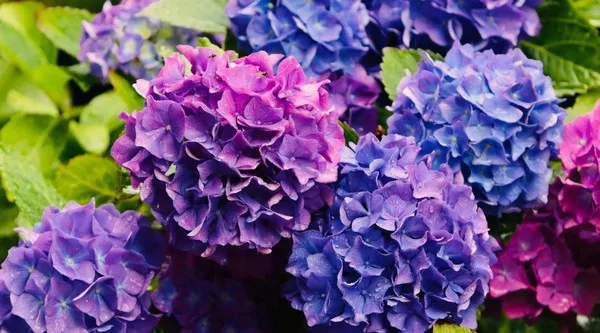Hibiscus flowers, with their vibrant colors and distinctive petals, have long been admired as ornamental plants. Beyond their aesthetic appeal, hibiscus flowers have found their way into various culinary traditions, offering a unique blend of flavor and potential health benefits. In this exploration, we will delve into the safety aspects of consuming hibiscus flowers, examining their nutritional profile, potential health benefits, and considerations for incorporating them into your diet.
The Edible Appeal of Hibiscus Flowers
Hibiscus flowers, scientifically known as Hibiscus sabdariffa, are not only visually striking but also edible, contributing a tangy and slightly citrusy flavor to dishes and beverages. Commonly referred to as roselle or sorrel, the calyces of the hibiscus flowers are often used in culinary applications. The calyx is the fleshy, red, or dark maroon part that surrounds the seedpod of the flower. It is essential to note that not all hibiscus varieties are suitable for consumption, and it is crucial to distinguish the edible Hibiscus sabdariffa from ornamental hibiscus varieties.
Nutritional Profile of Hibiscus Flowers
Before exploring the safety aspects, understanding the nutritional composition of hibiscus flowers is essential. Hibiscus flowers are rich in various nutrients, including vitamin C, antioxidants, and minerals such as iron and calcium. The vibrant hue of the calyces is attributed to the presence of anthocyanins, powerful antioxidants associated with numerous health benefits. Additionally, hibiscus flowers contain organic acids, contributing to their distinctive tart flavor.
Potential Health Benefits of Hibiscus Flowers
Consuming hibiscus flowers may offer a range of potential health benefits, making them more than just a visually appealing addition to your plate. Some studies suggest that hibiscus may help lower blood pressure, reduce cholesterol levels, and exhibit anti-inflammatory properties. The antioxidants present in hibiscus flowers may contribute to cardiovascular health by supporting healthy blood vessel function. However, it is essential to approach these potential benefits with a balanced perspective and consider individual health conditions.
See Also: What flowers can a tortoise eat?
Cautionary Considerations for Consumption
While hibiscus flowers can be a flavorful and nutritious addition to your diet, there are certain considerations to keep in mind. Individuals with pre-existing medical conditions, such as low blood pressure or certain kidney issues, should exercise caution, as hibiscus may interact with medications or exacerbate existing health conditions. It is advisable to consult with a healthcare professional before incorporating hibiscus flowers into the diet, especially for those with specific health concerns.
Potential Interactions with Medications
Hibiscus flowers may interact with certain medications, potentially affecting their efficacy or causing adverse reactions. For example, hibiscus has been reported to have a mild blood pressure-lowering effect, which could interact with medications prescribed for hypertension. Individuals taking medications for heart-related conditions, diabetes, or kidney issues should consult their healthcare provider before regularly consuming hibiscus flowers to avoid potential complications.
Oxalate Content and Kidney Health
Hibiscus flowers contain oxalates, naturally occurring compounds found in many plants. Oxalates can contribute to the formation of kidney stones in susceptible individuals. While the oxalate content in hibiscus flowers is generally moderate, individuals with a history of kidney stones or kidney-related issues should be mindful of their oxalate intake. Adequate hydration and moderation in consumption can help minimize the risk of oxalate-related concerns.
Pregnancy and Lactation Considerations
Pregnant and lactating individuals should exercise caution when consuming hibiscus flowers. The safety of hibiscus during pregnancy and lactation has not been extensively studied, and there is limited information available on its potential effects on fetal development or breastfeeding infants. As a precaution, pregnant and lactating individuals are advised to consult with their healthcare provider before incorporating hibiscus flowers into their diet.
Quality and Source of Hibiscus Flowers
Ensuring the safety of consuming hibiscus flowers also involves paying attention to the quality and source of the flowers. If you plan to consume hibiscus flowers, it is advisable to choose organic and food-grade varieties to minimize the risk of pesticide or chemical residues. Additionally, if sourcing hibiscus flowers from your garden, ensure that they have not been treated with pesticides or herbicides that are not suitable for human consumption.
Preparation Methods and Culinary Applications
To make the most of hibiscus flowers while ensuring safety, proper preparation methods are crucial. Hibiscus flowers can be used fresh or dried for culinary applications. To prepare fresh hibiscus calyces, remove the seedpod and rinse the calyx under cold water to remove any debris. Drying hibiscus flowers involves laying the calyces in a single layer and allowing them to air dry or using a food dehydrator for more controlled drying.
Common culinary applications for hibiscus flowers include making hibiscus tea, jams, jellies, syrups, and incorporating them into salads or desserts. Hibiscus tea, in particular, is a popular and refreshing beverage enjoyed worldwide. To prepare hibiscus tea, steep dried hibiscus calyces in hot water, and optionally sweeten with honey or other natural sweeteners.
Moderation is Key
As with many foods, the key to enjoying the potential benefits of hibiscus flowers while ensuring safety is moderation. Excessive consumption may lead to an intake of compounds that could have adverse effects, such as the oxalates mentioned earlier. Incorporating hibiscus flowers into a well-balanced and varied diet, rather than relying solely on them for specific health benefits, is a sensible approach.
Conclusion
Hibiscus flowers, with their captivating appearance and unique flavor profile, can be a delightful addition to your culinary repertoire. While they offer potential health benefits, it is crucial to approach their consumption with awareness and caution. Consultation with healthcare professionals, especially for individuals with pre-existing health conditions or those taking medications, is advisable. By understanding the nutritional profile, potential interactions, and considerations for consumption, you can savor the culinary delights of hibiscus flowers safely and responsibly.


